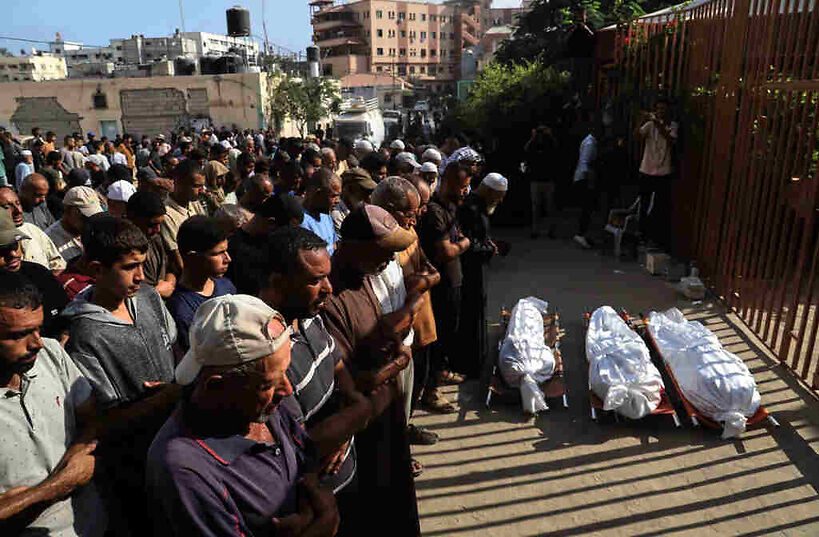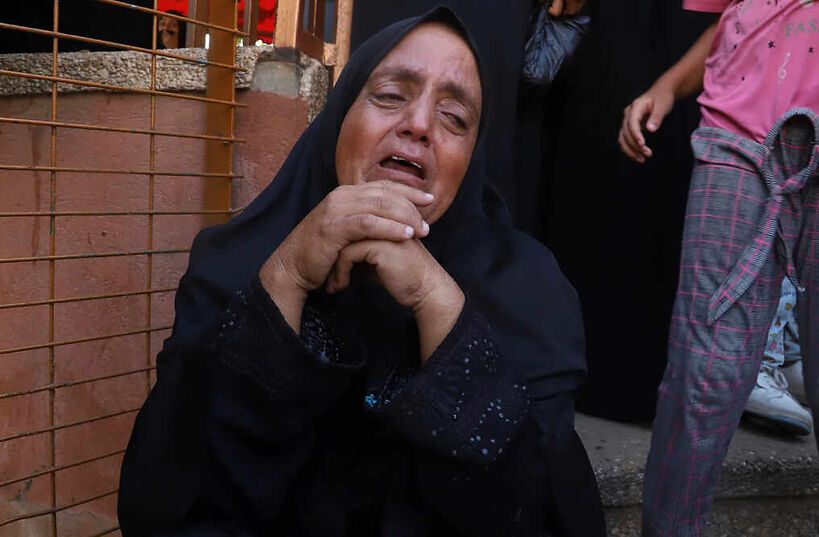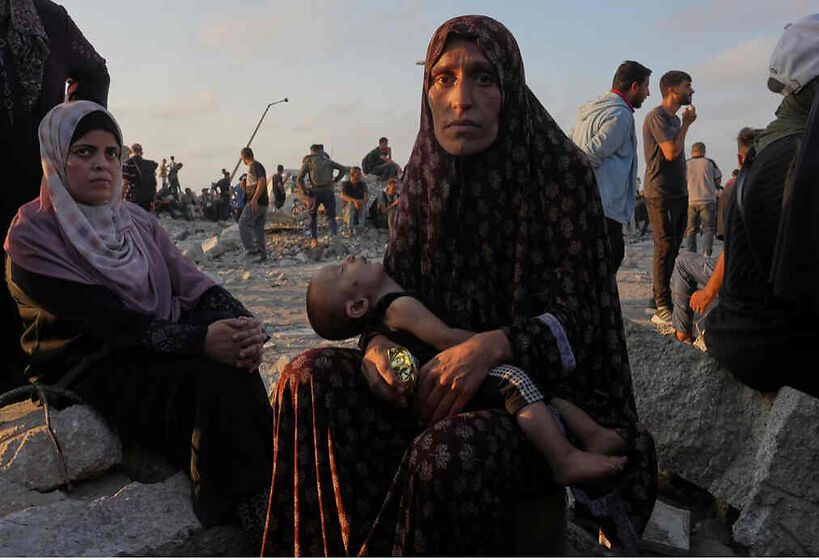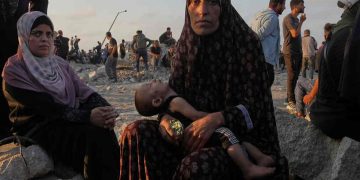A rare and historic declaration of famine has been issued for Gaza’s largest city, intensifying global concern as Israeli airstrikes and gunfire killed at least 33 Palestinians on Saturday.
The Integrated Food Security Phase Classification (IPC), the world’s leading authority on food crises, confirmed that famine conditions are now gripping Gaza City after nearly two years of war.
The announcement comes amid Israel’s ongoing 22-month military offensive, which began after Hamas’ October 7, 2023, attacks. Aid agencies and governments worldwide are urging Israel to halt its campaign, warning that starvation and malnutrition are spreading rapidly among civilians.
Local hospitals in Gaza reported that Israeli strikes killed at least 17 people early Saturday in Khan Younis, including women and children sheltering in makeshift tents. Health officials at Nasser Hospital confirmed that many of the victims were displaced families who had fled bombardments in northern Gaza.
“No place in Gaza is safe. The entire Strip is being bombed; north, south, everywhere,” said Awad Abu Agala, who lost two young relatives in the attack.
In northern Gaza, five people were fatally shot while seeking food near the Zikim crossing with Israel, according to staff at Sheikh Radwan field hospital. Another six deaths were reported across the enclave by the Palestinian Red Crescent.

MARIAM DAGGA / AP
Witnesses described scenes of desperation as families risked their lives in search of aid. “We want to rest. Have mercy on us,” pleaded Hekmat Foujo, a grieving woman in Khan Younis.
The IPC’s declaration marks the first time famine has been confirmed in the Middle East by the global body. The report warns that nearly half a million Gazans around one-fourth of the population face catastrophic hunger, with many at risk of dying from malnutrition.
The famine stems from a collapse in food production, widespread displacement, and severe restrictions on humanitarian aid. Earlier this year, Israel imposed a 2½-month blockade, only later easing access to allow limited food shipments and U.S.-backed private aid through the Gaza Humanitarian Foundation (GHF).
Despite recent airdrops and convoys, the United Nations and other relief agencies say food supplies remain far below what is needed. Aid deliveries are also hampered by chaotic distribution and Israeli troops firing warning shots near delivery points.
Prime Minister Benjamin Netanyahu’s office rejected the famine declaration, calling it “an outright lie.” Israeli officials accuse Hamas of hoarding supplies and starving hostages.
The military insists that sufficient aid has entered Gaza since the start of the war. Still, international outrage is mounting, fueled by harrowing images of emaciated children and mass graves.
Israeli forces are intensifying operations around Gaza City, raising fears of a full-scale assault within days. Military officials say the city remains a Hamas stronghold with extensive tunnel networks, even as hundreds of thousands of civilians are trapped inside.
Doctors Without Borders (MSF) reported a surge of patients in its clinics as families once again flee bombardments. “Strikes are forcing people, including our staff, to abandon their homes,” MSF said in a statement.

MARIAM DAGGA / AP
The looming assault also threatens the lives of roughly 20 surviving hostages still believed to be held by Hamas since 2023. Many Israelis fear their fate could be sealed if the offensive begins.
Efforts toward a ceasefire remain uncertain. Hamas recently accepted a proposal from Arab mediators, but Israel has yet to respond. The militant group says it is willing to release captives in exchange for an end to the war but refuses to disarm without the establishment of a Palestinian state.
Prime Minister Netanyahu has signaled interest in resuming negotiations but insists Israel will end the war on its own terms. U.S. President Donald Trump voiced frustration with Hamas, accusing the group of extortion. “The situation has to end,” Trump said Friday. “I actually think the hostages are safer if you went in fast.”
Gaza’s Health Ministry reported Saturday that at least 62,622 people have been killed since the war began, including those previously missing now confirmed dead by a special judicial committee. Malnutrition-related deaths have risen to 281, underscoring the severity of the food crisis.
Back in Israel, divisions are deepening. Protesters confronted far-right National Security Minister Itamar Ben-Gvir in Kfar Malal, demanding that the government prioritize hostage negotiations over military escalation. “We don’t want him in our village. Bring back the hostages,” said demonstrator Boaz Levinstein.

ABDEL KAREEM HANA / AP
Ben-Gvir, a key member of Netanyahu’s coalition, remains opposed to any deal with Hamas; a position that further complicates Israel’s political landscape as the humanitarian disaster unfolds.
Global Pressure Rising
With famine now officially confirmed in Gaza City, pressure on Israel is intensifying from aid groups, foreign governments, and grassroots activists worldwide. Diplomats warn that unless food and medicine deliveries are dramatically increased, the crisis will deepen beyond repair.
The IPC has warned that famine will spread further if hostilities continue. For families in Gaza, already enduring relentless bombardment and starvation, the international debate offers little comfort.
As one grieving father in Khan Younis said:
“They are talking politics, but our children are dying.”
































